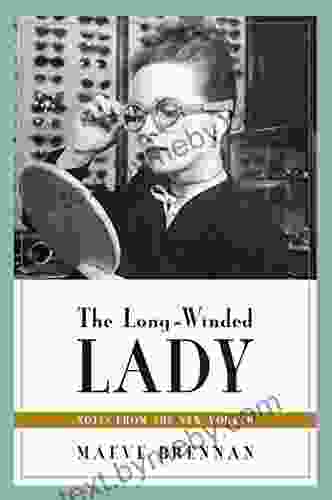Jazz and Racial Blackness in German Thought Between the Wars

5 out of 5
| Language | : | English |
| File size | : | 6332 KB |
| Text-to-Speech | : | Enabled |
| Screen Reader | : | Supported |
| Enhanced typesetting | : | Enabled |
| Print length | : | 226 pages |
During the interwar period in Germany, jazz emerged as a captivating force that ignited debates on race, culture, and national identity. Its arrival from the United States sparked intellectual curiosity and fascination, while also stirring complex reactions to the racial blackness associated with the music. This article delves into the multifaceted relationship between jazz, racial blackness, and German thought during that tumultuous era.
The Reception of Jazz in Germany
Jazz arrived in Germany in the early 1920s, coinciding with the Weimar Republic's cultural and political upheaval. The music's rhythmic energy, syncopated melodies, and improvisational nature captivated listeners and challenged traditional musical conventions. Jazz clubs flourished in major cities such as Berlin, Munich, and Hamburg, attracting a diverse audience of artists, intellectuals, and ordinary citizens.
Race, Music, and German Identity
Jazz's association with racial blackness proved to be a significant factor in its reception. German intellectuals and critics grappled with the question of how to reconcile the music's aesthetic appeal with the racial stereotypes associated with African Americans. Some viewed jazz as a symbol of primitive, African rhythms, while others saw it as a form of cultural appropriation that threatened German musical purity.
The Impact on German Philosophy
The debates surrounding jazz and racial blackness had a profound impact on German philosophy. Philosophers like Theodor W. Adorno, Max Horkheimer, and Ernst Bloch engaged with jazz as a cultural phenomenon that challenged traditional notions of race, identity, and authenticity. They explored the complex relationship between cultural expression and social power, recognizing the ways in which jazz both reflected and subverted racial stereotypes.
The Influence of African American Culture
As jazz gained popularity in Germany, it also played a role in introducing African American culture and perspectives to the country. Through musicians, performances, and recordings, Germans were exposed to the rich musical traditions, literary works, and social experiences of African Americans. This exposure contributed to a growing awareness of the complexities of race and the challenges faced by marginalized communities.
Modernism and Cultural Exchange
The interwar period was characterized by a spirit of modernism and cultural exchange. Jazz, with its innovative sounds and rhythms, became a symbol of the avant-garde and played a pivotal role in the broader cultural dialogue between Germany and the United States. The reception of jazz reflected Germany's evolving relationship with American culture, a relationship that was both influenced by and challenged notions of racial difference.
The Lasting Legacy
The interplay between jazz, racial blackness, and German thought during the interwar period left a lasting legacy on German culture and philosophy. The debates and ideas that emerged during that time shaped later generations' understanding of race, music, and cultural exchange. Jazz continued to be a powerful force in German society, inspiring artists, musicians, and intellectuals to explore the complexities of racial identity and cultural expression.
The relationship between jazz, racial blackness, and German thought between the wars was a complex and multifaceted one. It involved intellectual debates, cultural exchanges, and societal transformations. Through the lens of jazz, German intellectuals and artists confronted the challenges of racial stereotypes, explored the role of music in shaping identity, and ultimately expanded their understanding of the cultural landscape of the era. The legacy of this encounter continues to resonate, reminding us of the enduring power of art and music to question, inspire, and transcend societal boundaries.
5 out of 5
| Language | : | English |
| File size | : | 6332 KB |
| Text-to-Speech | : | Enabled |
| Screen Reader | : | Supported |
| Enhanced typesetting | : | Enabled |
| Print length | : | 226 pages |
Do you want to contribute by writing guest posts on this blog?
Please contact us and send us a resume of previous articles that you have written.
 Book
Book Novel
Novel Page
Page Chapter
Chapter Text
Text Story
Story Genre
Genre Reader
Reader Library
Library Paperback
Paperback E-book
E-book Magazine
Magazine Newspaper
Newspaper Paragraph
Paragraph Sentence
Sentence Bookmark
Bookmark Shelf
Shelf Glossary
Glossary Bibliography
Bibliography Foreword
Foreword Preface
Preface Synopsis
Synopsis Annotation
Annotation Footnote
Footnote Manuscript
Manuscript Scroll
Scroll Codex
Codex Tome
Tome Bestseller
Bestseller Classics
Classics Library card
Library card Narrative
Narrative Biography
Biography Autobiography
Autobiography Memoir
Memoir Reference
Reference Encyclopedia
Encyclopedia Mark Ferguson
Mark Ferguson Lydia Wilen
Lydia Wilen Nina Montgomery
Nina Montgomery Rebecca Black
Rebecca Black Steven Whibley
Steven Whibley Louise Pickford
Louise Pickford Mark Smith
Mark Smith Michael Mason
Michael Mason William Hazlitt
William Hazlitt Mark J Kohler
Mark J Kohler Maria Spantidi
Maria Spantidi Sarah Prager
Sarah Prager Nadia Eghbal
Nadia Eghbal Magunta Dayakar
Magunta Dayakar Malcolm Russell
Malcolm Russell Lisa Wells
Lisa Wells Lorne Lantz
Lorne Lantz Mamta Motiyani
Mamta Motiyani William W Johnstone
William W Johnstone T Buburuz
T Buburuz
Light bulbAdvertise smarter! Our strategic ad space ensures maximum exposure. Reserve your spot today!

 Robert ReedPicking The Right Tennis Racquet And Strings: Expert Insights for an Optimal...
Robert ReedPicking The Right Tennis Racquet And Strings: Expert Insights for an Optimal...
 Houston PowellThe American Capitalism Reader: A History of Inequality in the United States
Houston PowellThe American Capitalism Reader: A History of Inequality in the United States Vince HayesFollow ·4.1k
Vince HayesFollow ·4.1k Dennis HayesFollow ·10.2k
Dennis HayesFollow ·10.2k Glenn HayesFollow ·9.6k
Glenn HayesFollow ·9.6k Corey GreenFollow ·7k
Corey GreenFollow ·7k Miguel de CervantesFollow ·12.4k
Miguel de CervantesFollow ·12.4k Dakota PowellFollow ·11.3k
Dakota PowellFollow ·11.3k Pat MitchellFollow ·15.7k
Pat MitchellFollow ·15.7k Kyle PowellFollow ·17.1k
Kyle PowellFollow ·17.1k

 Clay Powell
Clay Powell20 Must Visit Attractions In La Paz, Bolivia
La Paz, Bolivia...

 Giovanni Mitchell
Giovanni MitchellUltimate Guide to Special Forces Skills, Tactics, and...
The world of...

 Joseph Heller
Joseph HellerThe Texas Ranger and Hunter Illustrated: A Visual Journey...
Prepare to embark on an...

 José Martí
José MartíThe Secrets and Science of Ads That Sell More: A...
Are you struggling to create...

 Eli Blair
Eli BlairAdolescents and Their Families: A Comprehensive Guide for...
Adolescence,...

 Neil Gaiman
Neil GaimanMosby Diagnostic and Laboratory Test Reference: The...
In the dynamic healthcare landscape, staying...
5 out of 5
| Language | : | English |
| File size | : | 6332 KB |
| Text-to-Speech | : | Enabled |
| Screen Reader | : | Supported |
| Enhanced typesetting | : | Enabled |
| Print length | : | 226 pages |








